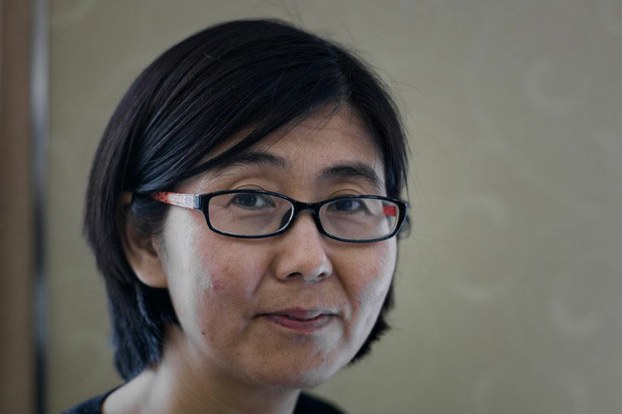The following censorship instructions, issued to the media by government authorities, have been leaked and distributed online. The name of the issuing body has been omitted to protect the source.
Concerning the special investigation into several attorneys at the Beijing Fengrui Law Firm, who are involved in a serious crime: without exception, all websites must refrain from publishing special features, and must not investigate, report, or comment on the case without authorization. Harmful information on Weibo, WeChat, and other interactive platforms must be deleted immediately. Take prompt action to manage and control poor quality accounts. (January 14, 2016) [Chinese]
In early July last year, hundreds of rights lawyers and their associates were detained or questioned in what became known as the Black Friday or 709 (July 9th) crackdown. The crackdown centered on the Beijing-based Fengrui Law Firm, accused of being the core of a criminal gang which manipulated sensitive cases to win fame and fortune. Most of those targeted were soon released, but 20 or more (the count varies from organization to organization) were held under residential surveillance or other forms of detention. This week, following the expiration of the six-month limit on residential surveillance, many of those still detained have been formally charged. Chinese Human Rights Defenders sums up the week’s events, including the most recent charges against Liu Sixin and Hu Shigen and background on the detentions:
Seven of the 11 arrested this week, including lawyers Wang Yu (王宇), Wang Quanzhang (王全璋), Zhou Shifeng (周世锋), trainee lawyer Li Shuyun (李姝云), activists Liu Sixin (刘四新) and Hu Shigen (胡石根), and paralegal Zhao Wei (赵威), face a “political” charge—“subversion of state power”—that has only been used in prosecuting political dissidents or “enemies of the state,” and carries a maximum sentence of life imprisonment. Three others face the charge “inciting subversion against state power,” which has normally been used to persecute individuals who express criticism of the government. Another individual, a paralegal, has been accused of “helping to destroy evidence.” In total, 22 individuals have been detained incommunicado or forcibly disappeared for at least six months, including three who were released within the past week. Of the 19 held since last July, the detention status and whereabouts of eight individuals are still unclear.
Meanwhile, authorities have apparently expanded the wave of persecution by detaining yet another rights lawyer, Wang Qiushi (王秋实), who was defending detained lawyer Wang Quanzhang. Police took Wang Qiushi into custody on January 10 after summoning him twice for questioning, and later put him under “residential surveillance in a police-designated location.” Wang has worked on several high-profile cases, and represented one of the Five Feminists authorities detained last spring. [Source]
At The Guardian, Tom Phillips describes shock at the unexpectedly heavy subversion charges:
Ren Quanniu, a lawyer for Zhao Wei, a 24-year-old legal assistant facing the same charges, said her formal arrest notice had left him perplexed.
“I thought they might have written it down wrongly,” he said. “Inciting subversion of state power is completely different to subverting state power – the latter is much more serious. It means you took real actions.” [Read details on the difference from Siweiluozi.]
[…] Initially, China’s Communist party-controlled media painted the crackdown as part of a government attempt to “tame disruptive and badly behaving lawyers”. Xinhua, the official news agency, took aim at “lawless lawyers” who it claimed had been “rabble-rousing in the streets”.
“[But] that narrative seems to have really shifted now towards presenting a group of lawyers at the centre of some sort of conspiracy to undermine the political regime as a whole,” said [Joshua Rosenzweig, a Hong Kong-based human rights expert]. “That is a pretty serious allegation and it takes [things] a step further. It is a much more serious accusation against a group of lawyers than we have seen in the past.”
[Eva Pils, an expert in Chinese law and human rights from King’s College London] said the decision to resort to political subversion charges represented “a very different, much more public, assertive, brazen way of saying we don’t tolerate human rights advocacy. It is a signal that the party-state really means to move against human rights advocates. You sort of feel that they really mean essentially to just get rid of this form of lawyering, they want to get rid of forceful legal advocates.” [Source]
The detention last week of a Beijing-based Swedish legal aid worker offers another sign of this new, more aggressive policy.
 Since directives are sometimes communicated orally to journalists and editors, who then leak them online, the wording published here may not be exact. The date given may indicate when the directive was leaked, rather than when it was issued. CDT does its utmost to verify dates and wording, but also takes precautions to protect the source.
Since directives are sometimes communicated orally to journalists and editors, who then leak them online, the wording published here may not be exact. The date given may indicate when the directive was leaked, rather than when it was issued. CDT does its utmost to verify dates and wording, but also takes precautions to protect the source.







